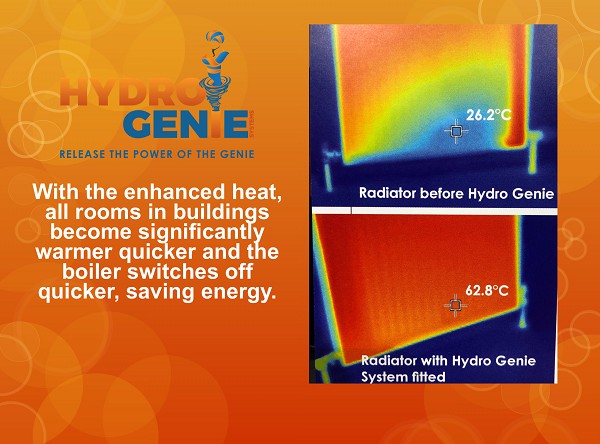How to keep the heating on and reduce carbon emissions
With a climate emergency officially declared and customers increasingly aware of environmental issues, new technology is coming on to the market that will help keep guests warm and bring carbon emissions down.
In the hospitality industry, keeping the heating on in the colder months is essential. A warm, cosy room is expected by guests as they check-in to stay for the night. A cold hotel or Bed & Breakfast could quickly see its TripAdvisor ratings suffer.
Yet, like all other industries, the hospitality sector is facing its own challenge to reduce carbon emissions and help tackle the climate crisis. According to the Carbon Trust, the hospitality and leisure sector accounts for over a third of the UK’s energy consumption. Heating, which is so important to a guest’s overall experience, is one of the key contributors to carbon emissions in hotels. Heating systems also account for up to 60% of hotel energy bills.
With customers becoming ever more aware of global warming and a Climate Emergency Declaration made by Parliament in 2019, the hospitality industry is looking for ways to reduce emissions and environmental impact. So, how do you keep the heating on and reduce carbon emissions while still making a profit?
Making existing heating systems work smarter
One new solution recently launched to market, Hydro Genie Systems, works with existing gas, electric and oil heating systems to make them much more efficient, cutting fuel consumption and emissions by up to 35%*.
Retro-fitted to the pipe work of existing boilers, the Hydro Genie System is an enhanced heat transfer modifier that works with central heating systems that burn natural fossil fuels. Using proven, patented technology, it dramatically improves the heat transfer to the circulating water in your central heating which reduces the amount of fuel your boiler uses. It also removes oxygen from the water which is the cause of rust and sludge build-up in radiators. The Hydro Genie System removes this rust and sludge so that radiators provide up to 20% more heat. Overall, this leads to lower carbon emissions, warmer rooms and much lower heating bills.
For hotels, there is also the option to couple the installation of the Hydro Genie System with a smart temperature control system. This allows room temperatures to be controlled from the front desk. So, when a room is unoccupied, or during the night, heating can be turned down, saving fuel and reducing emissions. Guests can even choose what temperature they want their room to be. If a bedroom window is opened, the system will also automatically switch off the radiator in that room.
Together, the installation of a Hydro Genie System and a smart temperature control system will dramatically reduce the fuel consumption of boilers, reducing emissions and reducing fuel bills. All while guests enjoy rooms that are at a temperature that they want them to be to help them enjoy their stay.
*As shown in tests carried out by Strathclyde Eco-Innovation Unit.



